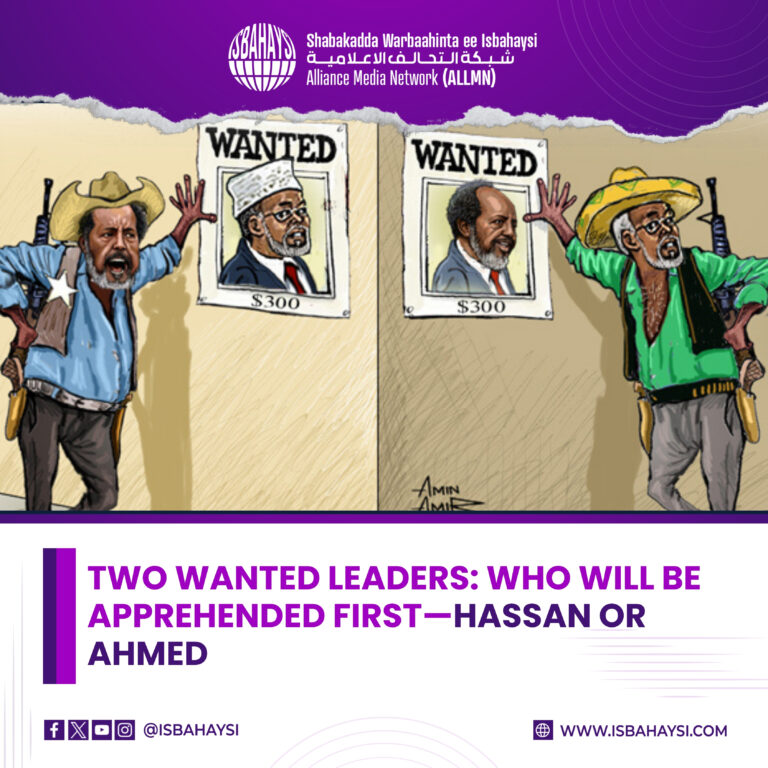
Jubbaland stands as one of the most pivotal federal states in Somalia, with Ahmed Mohamed Islam Madobe at its helm since its inception. For the past twelve years, Jubbaland has played an instrumental role in shaping the political trajectory of the Federal Government of Somalia (FGS).
However, recent developments have precipitated a marked deterioration in relations between Jubbaland and the administration of President Hassan Sheikh Mohamud, which had previously functioned as close allies over the preceding two years. Jubbaland has now emerged as a critical point of contention, thwarting several of the president’s political endeavors, most notably his attempts to extend his tenure.
The conflict between the two sides has reached a fever pitch, with all prospects for peace, dialogue, and negotiation appearing increasingly bleak. They are now engaged across multiple fronts, each striving to assert dominance over the other. Here, we delve into four principal areas of contention and the outcomes each side has achieved thus far.
The Gedo Region’s Influence
Gedo has transformed into the most fiercely contested battleground between the FGS and Jubbaland. Following Ahmed Madobe’s re-election, the FGS dedicated considerable resources to seize control of Gedo, particularly by attempting to ferry pro-FGS officials, led by Abdullahi Shimbir (then-Gedo governor under Jubbaland), to Garbahaarrey. However, Ethiopian security forces stationed in the region rebuffed this delegation.
Reports indicate that the FGS attempted to bribe Ethiopian commanders in Garbahaarrey and Baidoa, offering $35,000 and $50,000, respectively, to facilitate Shimbir’s entry. Although these bribes initially proved effective, Ethiopia later reprimanded its commanders and barred Shimbir from engaging in any activities, effectively undermining the FGS’s designs in Gedo and reinforcing Ahmed Madobe and Jubbaland’s preeminence in the region.
Relations with Kenya
Prime Minister Hamza Abdi Barre’s visit to Kenya was underpinned by two primary objectives: to apply pressure on Ahmed Madobe and to solicit Kenyan support against him. During a meeting with the chief of Kenya’s intelligence services, Barre sought assistance in ousting Madobe from power. However, Kenya rebuked the deployment of FGS troops to Raaskambooni, a sensitive border area under Kenyan control, arguing that their presence jeopardized regional security and demanded their withdrawal within fifteen days. Barre also endeavored to persuade members of the Kuumade clan (to which he and Madobe both belong) to distance themselves from Madobe. Nevertheless, clan elders chose to align with Madobe, resulting in the cancellation of a scheduled meeting with a hundred clan members.
Upon Barre’s return from Kenya, the FGS established a committee tasked with overseeing matters concerning Jubbaland, which would engage with both domestic and international stakeholders. This committee comprises: 1. Minister of Foreign Affairs Ahmed Macallin Fiqi, 2. Minister of Education Farah Sheikh Abdulqadir, and 3. Chief of National Security and Intelligence Sanbaloolshe. Notably, this committee does not include any representatives from Jubbaland, highlighting the federal government’s misguided approach towards the region.
Internal Conflict in Lower Jubba
Since Ahmed Madobe’s re-election, the FGS has financially supported opposition figures within Jubbaland, including Ilyas Bedel Gaboose, who proclaimed himself the president of Jubbaland with backing from the FGS. However, his efforts have yielded minimal impact, and a close associate of his was recently assassinated. Madobe has characterized Gaboose as a negligible threat, asserting that he could effectively neutralize Gaboose’s claims to power in a matter of minutes.
Meanwhile, the FGS deployed troops to Raaskambooni, relying on former Jubbaland forces that had previously been under Kenyan influence. However, given that Raaskambooni is situated over 260 kilometers from Kismayo, this military deployment has had a limited effect on the principal political dynamics within Jubbaland.
Representation of Jubbaland in FGS
A further area of contention has emerged over the struggle for representation of Jubbaland within the federal landscape. Madobe successfully rallied over forty Members of Parliament to Kismayo, ensuring their allegiance during his re-election. Moreover, several ministers and advisors have resigned from the FGS, citing the federal government’s hostility toward Jubbaland as their rationale for departure.
Conclusion
To date, the FGS has struggled to secure any considerable victories in its efforts to undermine Ahmed Madobe’s leadership in Jubbaland. Across all fronts of this political struggle, Jubbaland appears to have effectively outmaneuvered the federal government, leaving the latter ensnared in mounting pressures and grappling for control.